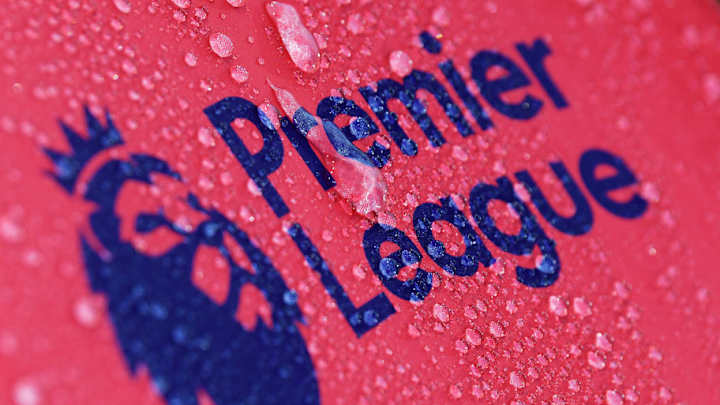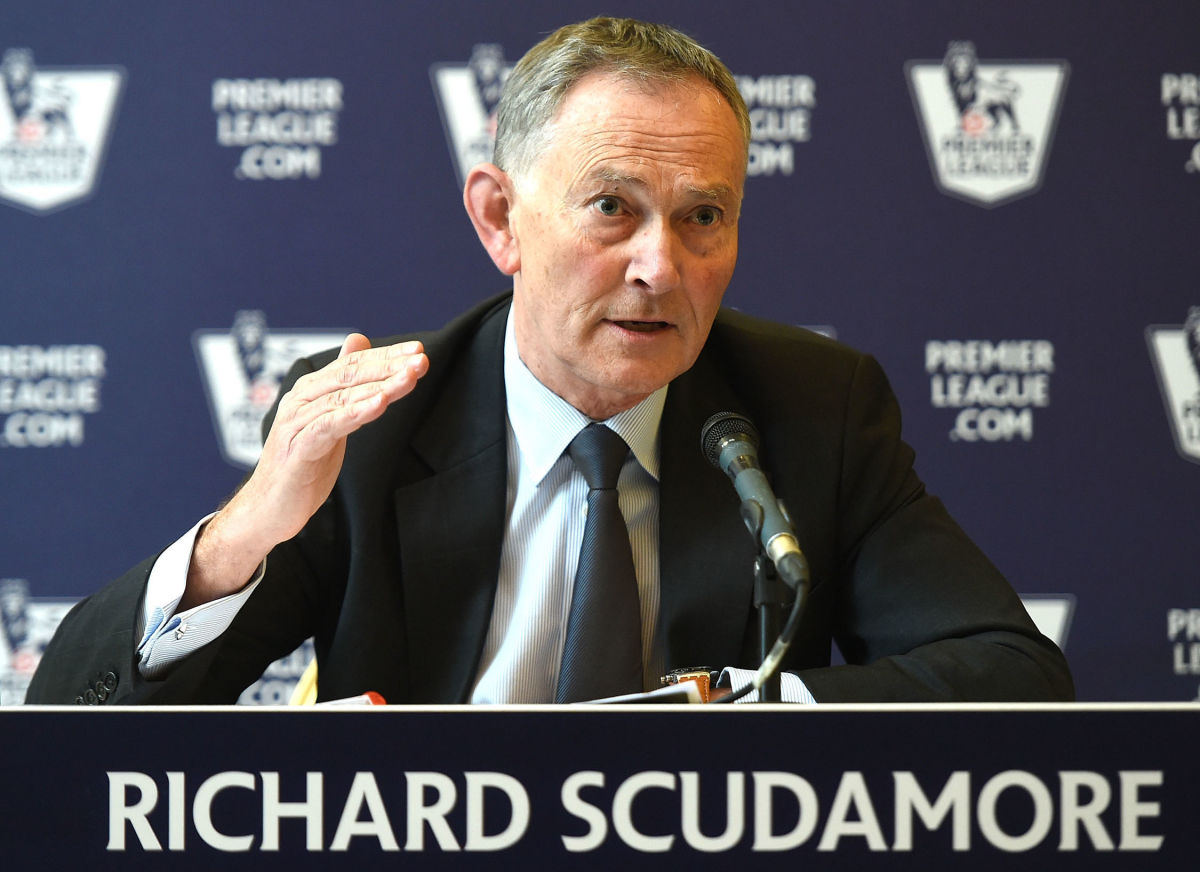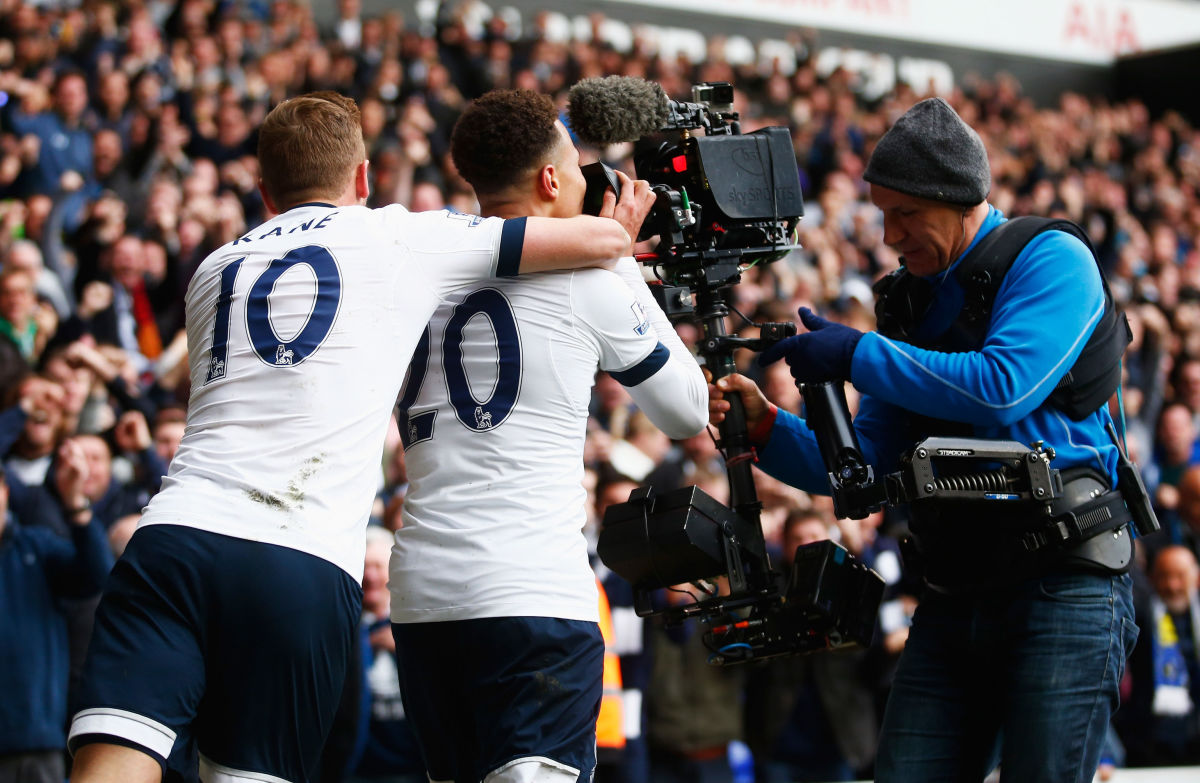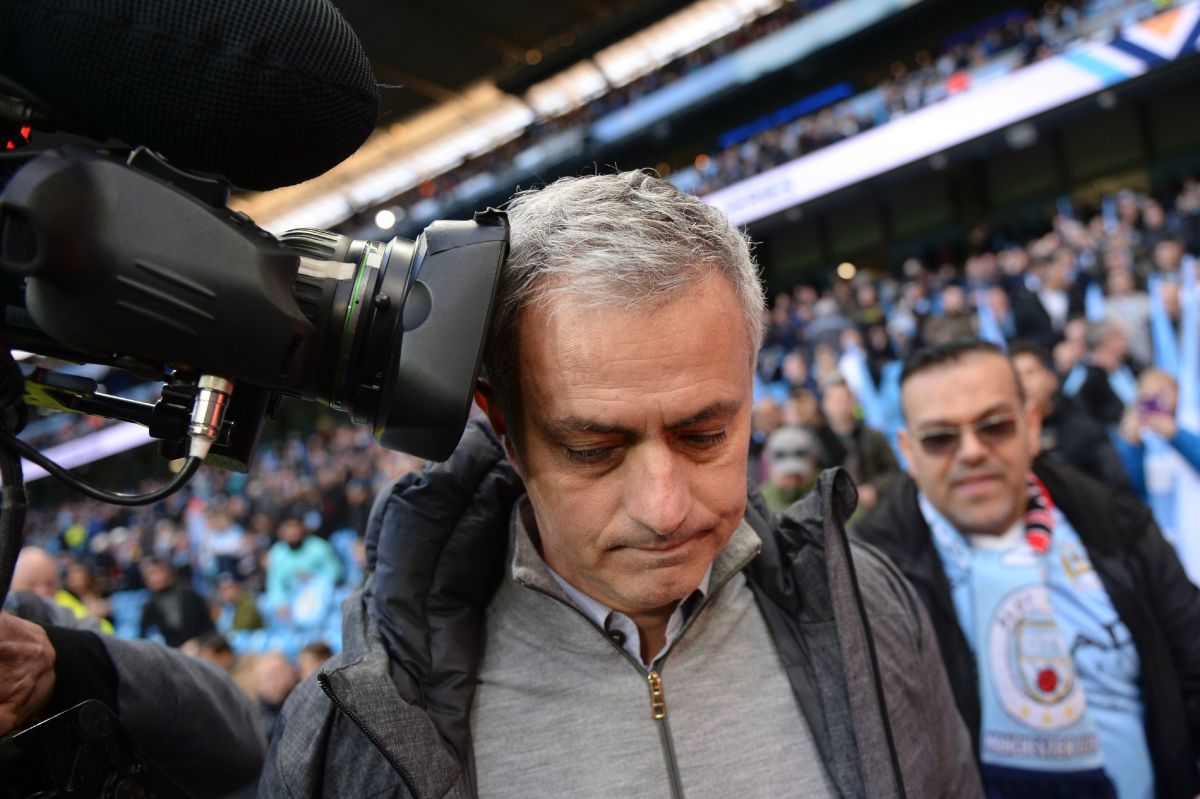Why the Emergence of Amazon & Facebook as Possible Broadcasters Will Only Benefit the Premier League

With the Premier League's triennial TV rights negotiations dawning once more, it is no secret that the ensuing battle to showcase the great and the good of English football will boast some intriguing newcomers. Both Facebook and Amazon will purportedly engage with evergreen broadcasters Sky and BT in what is now essentially a wallet weighing competition, with each entity looking to secure the goldmine that is the Premier League.
At this point, the negotiations fittingly resemble the machinations of a set-piece; the free-kick taker (in this instance, Richard Scudamore) is hovering over the ball, assessing his options, whilst each hopeful party ferociously jostles for position in the six yard box. Whoever rises highest to meet Scudamore's challenge, and dispatches the ball into the net, will profit enormously.
However, what makes this proverbial set-piece all the more compelling is that it is not merely a one-off, winner takes all contest. There are multiple opportunities/balls in play for each conglomerate to snatch a piece of the glory.

To put this extended metaphor in context, Scudamore and his Premier League colleagues have increased their offering of 168 live games in the previous deal, to a whopping 200, in an attempt to inflate their already bulging £5.14bn revenue.
The enticing new bundle is comprised of five packages of 32 matches, and two packages of 20 matches per season, with an imposed limit of 148 matches per broadcaster (per season). Although at this juncture both traditional providers are expected to maintain most of their current packages, a bid from either of their cash-strapped rivals would certainly test their resolve.
With BT stating that the Premier League isn't an "existential" part of their brand, and evidently cornering themselves in the European market, their domestic duopoly with Sky may be coming to an end. And the Premier League would be all the better for it.
The Premier League TV rights battle has kicked off.
— BBC Sport (@BBCSport) December 19, 2017
We could see a big change in the future.https://t.co/yICdSz99xx pic.twitter.com/4yJaC0N4xy
Both Facebook and Amazon have dipped their toes into the live sports world this year, to varying degrees of success, but the Premier League (and US domestic sports) are seen as the greatest prize, and indeed their next logical step.
This could be a watershed moment for the consumption of sports as we know it, akin to the recent transformations within the film, music and television industries. While it would certainly be seen as a coup from the perspective of the aforementioned prospective buyers, it would also be a sensible option for the Premier League itself to explore.
Despite the various actions of the traditional broadcasters to reaffirm their positions as top dogs - such as Sky's recent rebranding and revamp of their sports package - they have yet to successfully reconcile with the changing dynamic of how the new generation consumes sport. Despite, at least for the time being, residing on the outside looking in, the new wave of Social Media outlets have drastically morphed the way we observe the games we love.

No sport has dealt better with this modified climate than the NBA; by bucking the trend and allowing (in fact, actively encouraging) the distribution of the clips and highlights of their product on Social Media, they have enhanced their popularity globally and blazed a trail for other sports to follow.
However, it is unlikely that such a path would be tread in the UK, considering their persistent obstinacy in regards to the three o'clock blackout, and the subsequent funds they receive for their after the fact highlights packages.
The continued existence of admittedly beloved, but grossly outdated institutions such as Match of the Day and Soccer Saturday explicitly highlight the current system's inability to evolve with the times. Comparatively, should Facebook, Amazon, or even Twitter, suddenly enter the broadcasting fray, such modernisation would have to be at least acknowledged.

Not only would these ingrained and deeply old-fashioned outlooks be challenged, if anyone was to be trusted with successfully integrating and utilising these outlets we now use to absorb the game, it would surely be the outlets themselves. Additionally, the presence of the product on these platforms would surely help curtail the use of other illegal online streaming services, a problem the Premier League has thus far been unable to sufficiently grapple with.
While the progression of cord-cutting to such extremes may prove incompatible with some at first, it is undeniably the correct path in strengthening the Premier League's brand, but more importantly in improving its viewing experience domestically. For too long, the league has disregarded their UK audience in favour of a global reach.
Even though this has unquestionably lead to the current prosperity, ameliorating the viewing experience and accessibility nationally is imperative in ensuring the next generation enjoy the sport as much as the current one. Existing on Facebook or Amazon may be the only way to do so.
